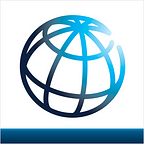This week at World Bank EduTech
week of July 26, 2021
This week, our World Bank EdTech team shares 5 critical questions that we will continue to explore over the next year with countries and colleagues to support countries to use EdTech to transform teaching and learning.
How can countries leverage EdTech investments to develop resilient hybrid learning systems?
This question requires both reflecting on the lessons from implementation of remote learning during COVID and addressing the new digital infrastructure access divide. Over the next year, the team will be working with countries to identify how to address issues of affordable connectivity, device procurement, cloud solutions and multi-modal delivery of education. Below are a few resources that we will build upon.
- 📑 Blog: What is hybrid learning?
- 🎧 Podcast Episode: Exploring the potential of digital infrastructure
- 🎧 Podcast Episode: Understanding the perceived effectiveness of remote learning — lessons from 18 countries
- 📑 Blog: How can countries implement low tech remote learning?
- 📑 Blog: Remote Learning During COVID-19 — how to implement multi-channel delivery
- 📑 Blog: The Promise and Challenges of Virtual Schools
How can countries recover learning loss, more effectively harness data and personalize learning with technology?
The team will deepen work on adaptive learning systems, remote assessment and how education systems can more effectively use learning analytics to personalize education. A major part of this work will be developing EMIS 2.0 strategies to support more effective use of data.
- 🎧 Podcast Episode: Mitigating learning losses and accelerating learning through Adaptive Learning
- 📑 Blog: Considering an adaptive learning system — a roadmap for policy makers
- 📑 Blog: Remote Assessment — Potential of phone-based formative assessments to support learning continuity
How can countries leverage open technology ecosystems to expand access to quality content and learning experiences?
The team will engage with partners developing open global public goods and strategies to engage the large ecosystem of innovators in client countries to support design and development of new educational content and curriculum. The team will develop communities of practice around EdTech innovation hubs and creative talent to develop new open educational content libraries. Some resources that the team will build on include:
- 🎧 Podcast: Open Learning Management Systems — How to select and evaluate, in conversation with ProFuturo
- 📑 Blog: Open Educational Resources are free but you still need to invest to use them
What are the changing roles and new skills for teachers in hybrid learning systems and how can additional human connections be leveraged through technology?
The team will collaborate with the World Bank Teacher Team to explore teacher competency frameworks, teacher networks, and communities of innovative teachers to support countries to empower teachers.
- 🎧 Podcast Episode: Supporting teachers in the age of the pandemic, a conversation with Ranjit Disale (Global Teacher Prize winner)
- 📑 Blog: The Changing Role of Teachers and Technologies amidst the COVID-19 pandemic
- 📑 Blog: Transforming how teachers use technology
- 📑 Blog: How to use technology to help teacher be better and to make life better for teachers
How can technology support the development, measurement and accreditation of future skills?
The team will work with the skills team to support countries to define 21st century competencies in students and teachers; explore ways to more effectively measure these skills and accredit these skills through communities of practice on hard to measure skills and blockchain for education.
- 📑 Blog: Reimagining Youth Skills
- 🎧 Podcast Episode: Leveraging Blockchain in Education for Africa Centers of Excellence, a conversation with VerifyEd, IBM, KNUST
- 🎧 Podcast Episode: Digital Learning and Skills: Part I and Part II, a conversation with European Commission Joint Research Centre
To support the investigation of these critical questions, the team will deepen work on:
- The EdTech Readiness Index to enable governments making investments in Education Technology to (a) identify weaknesses/highlight where policies can be strengthened (policy designers) and (b) monitor progress and the status of implementation (policy implementers). Check out this podcast episode on Monitoring Countries’ Readiness to Support Education with Digital Technologies: a Conversation with Imaginable Futures with Amy Klement of Imaginable Futures.
- The EdTech Policy Academy to provide just-in-time and relevant resources and country experiences to help client countries answer these questions and others.
